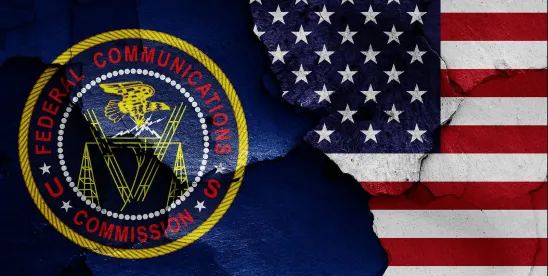Key Takeaways:
- The U.S. Supreme Court has ruled that the Hobbs Act does not require district courts in civil enforcement proceedings to follow federal administrative agencies’ legal interpretations of federal statutes.
- This ruling is a logical extension of Loper Bright, which, in overturning Chevron deference, expanded the judiciary’s power to review and reject agency interpretations of federal statutes.
- Justice Kavanaugh, writing for the 6-3 majority, determined it would be unfair to preclude judicial review by district courts and announced a “default rule” that applies where the statute neither expressly allows nor prohibits judicial review in the context of enforcement proceedings.
- Justice Kagan, joined by Justices Jackson and Sotomayor, vigorously dissented, asserting that the ruling effectively rewards parties that “intentionally or negligently forgo [ ]Hobbs Act review.”
In June 2024, the U.S. Supreme Court decided Loper Bright Enterprises v. Raimondo, which, in overturning Chevron deference, expanded the judiciary’s power to review and reject interpretations of statutes adopted by federal administrative agencies. Last week, the Court’s majority articulated a logical extension of Loper Bright, holding, over a vigorous dissent, that the Administrative Orders Review Act — usually referred to as the Hobbs Act, 64 Stat. 1129 — does not require district courts in civil enforcement proceedings to follow an agency’s legal interpretation of a federal statute. Instead, this ruling in McLaughlin Chiropractic Associates, Inc. v. McKesson Corp., et al. held that district courts “must determine the meaning of the law under ordinary principles of statutory interpretation, affording appropriate respect to the agency’s interpretation.” 1
McLaughlin involved a Federal Communications Commission (FCC) order interpreting the Telephone Consumer Protection Act (TCPA) 47 U.S.C.A. § 227, specifically the TCPA’s prohibition on unsolicited advertisements sent by fax to a “telephone facsimile machine.” McLaughlin claimed, on behalf of a class, that McKesson had violated the TCPA by faxing unsolicited advertisements that did not contain an opt-in notice required by the statute. Most class members received those faxes via online fax services; only a few received them via traditional fax machines. The district court did not differentiate and certified a class of all fax recipients.
The Amerifactors Order
But, while the McLaughlin litigation was pending, a third party, wholly uninvolved in the litigation, petitioned the FCC for a declaratory ruling as to whether the TCPA applied to faxes received through online fax services. The FCC answered “no” in In re Amerifactors Financial Group, LLC, interpreting the term “telephone facsimile machine” to exclude online fax services.2 The McLaughlin district court found the FCC’s Amerifactors Order to be binding, in that the court had no authority to “question the validity of FCC final orders,” which are, under the Hobbs Act, “subject to the exclusive review of the court of appeals in pre-enforcement suits.” McLaughlin, 2025 WL 1716136 at *3 (internal quotations omitted). The district court, therefore, granted summary judgment in favor of McKesson on claims involving online faxes and, because there were only twelve people left, decertified the class. Id.
The Ninth Circuit agreed that the district court was “bound by” the Amerifactors order and affirmed. The Supreme Court, however, granted certiorari to “decide whether the Hobbs Act required the District Court to follow the FCC’s legal interpretation of the TCPA.” Id. at 4. Justice Brett M. Kavanaugh, writing for a 6-3 majority, held that the answer is “no.”
A “Default Rule” Allowing Judicial Review When Not Expressly Prohibited
The Hobbs Act provides for pre-enforcement judicial review of FCC orders (and orders from other listed agencies). A party that disagrees with an agency order may file a petition in a federal court of appeals within 60 days of the order. The Hobbs Act provides that “[t]he court of appeals…has exclusive jurisdiction to enjoin, set aside, or suspend (in whole or in part), or to determine the validity of … all final orders of the [FCC].” 28 U.S.C. § 2342(1). The problem, the Supreme Court wrote, is what happens if nobody does this and the 60 days passed? Are all federal courts then required to accept the agency’s interpretation, even if they find it incorrect or even irrational? Unsurprisingly, in the wake of Loper Bright, the Court answered in the negative.
The Court found it unfair that judicial review should be precluded and announced a “default rule” that applies where the statute neither expressly allows nor expressly prohibits judicial review in the context of enforcement proceedings: “In an enforcement proceeding, the district court must independently determine for itself whether an agency’s interpretation of a statute is correct,” including reviewing “whether the rule or order was arbitrary and capricious under the APA or otherwise was unlawful.” Id.,2025 WL 1716136 at *6, n.2. The Court remanded McLaughlin back to the District Court for its independent determination as to whether the FCC’s decision excluding online faxes from the TPCA is correct.
A Cautionary Dissent
But Justice Kagan’s dissent — with Justices Jackson and Sotomayor joining — asked, what about the Hobbs Act’s language to the effect that the courts of appeals have “exclusive jurisdiction” to “determine the validity of” FCC or other agency orders? Id., 2025 WL 1716136 at *17. Doesn’t the plain language of the statute require that aggrieved parties seek review in a court of appeals within 60 days or forever hold their peace? Isn’t the “default rule” just made up? Why should we reward parties that “intentionally or negligently forgo [ ]Hobbs Act review?” Id., 2025 WL 1716136 at *14, n.1. Do we really want, for example, plutonium shippers to scoff at Atomic Energy Commission regulations until (or unless) an enforcement action is brought, and only then challenge the regulation? Justice Kavanaugh spent at least ten pages rebutting arguments made by McKesson, the Government and the dissent. The bottom line is that the majority found that none of these arguments outweighed the unfairness of precluding a party, who may well have been unaware of the agency’s ruling, from challenging its validity when that ruling is actually being applied to it.
After Loper Bright, the result in McLaughlin should have come as no surprise. Parties should consider the doors for challenging many administrative rules and regulations to be wide open.
[1] McLaughlin Chiropractic Associates, Inc. v. McKesson Corp., et al., No. 23-1226, 2025 WL 1716136 at *6 (June 20, 2025); https://www.supremecourt.gov/opinions/24pdf/23-1226_1a72.pdf
[2] In re Amerifactors Financial Group, LLC, 34 FCC Rcd. 11950 (2019); https://docs.fcc.gov/public/attachments/DA-19-1247A1_Rcd.pdf





 />i
/>i
